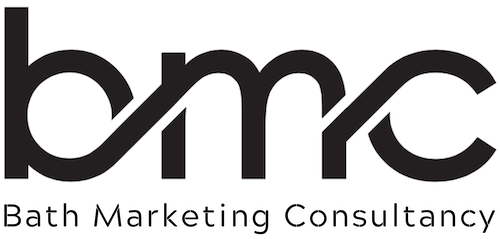Cold calling is often seen as one of the most daunting aspects of business development. Despite its reputation, when executed well, it can be a highly effective method of generating new leads and driving business growth. Understanding how to cope with rejections and turn them into opportunities is crucial to success.
What is Cold Calling and Who Makes Them?
Cold calling is the practice of contacting potential customers who have not previously expressed interest in your products or services. It’s typically conducted over the phone, although in some cases, it could include emails or direct messages on social media platforms. Cold calls are often made by sales teams, but in smaller businesses, the owner or a marketing professional may also take on the role.
While cold calling has been around for decades, the terminology has evolved over time. Today, it’s often referred to as lead generation, as businesses have shifted away from purely sales-driven approaches to creating and nurturing leads that will eventually convert into sales. Lead generation, unlike traditional cold calling, is a more strategic process that’s usually integrated into the broader marketing mix.
Cold Calling as Part of the Marketing Mix
Cold calling has always been considered a key part of outbound marketing. However, over the years, it has become increasingly integrated with digital and inbound marketing efforts. Companies are now using data and targeted campaigns to find the right audience, making the cold call more relevant and effective.
When combined with other marketing strategies such as content marketing, email campaigns, and social media outreach, cold calling can be an essential tool for driving sales. It’s important to understand that cold calling should not stand alone in your marketing strategy; it should be used alongside other techniques to ensure a holistic approach to lead generation.
How Cold Calling Has Evolved
Traditionally, cold calling was a numbers game—call as many people as possible and hope for the best. But today, cold calling is far more refined. With the rise of digital tools and data analysis, businesses are now able to target specific prospects who are more likely to be interested in their products or services. This shift has led to the evolution of cold calling into the more strategic practice of lead generation.
Rather than simply making random calls, modern lead generation involves research, targeting, and providing value to potential customers from the outset. This makes cold calling less about “selling” and more about nurturing relationships with prospects.
5 Tips to Cope with Rejection in Cold Calling
Now, let’s take a look at some of the most common objections you may face when cold calling, and how to respond confidently.
1. “I’m happy with my current supplier.”
This is one of the most common objections you’ll encounter. The key here is to acknowledge the existing relationship without discrediting the competitor. Never disparage the competition—this only reflects poorly on you. Instead, try saying something like:
“That’s great to hear! I know [Competitor] is a solid choice. However, I’d love the opportunity to meet with you briefly and show you some of our new services. This way, you’ll be in the best position to make an informed decision when it comes time to evaluate your options.”
2. “I don’t have the budget.”
It’s important to be sensitive to budget constraints. When you hear this objection, don’t push too hard. Acknowledge the challenge, but present a value-based response:
“I completely understand. Budgets are tight for everyone these days. We’ve recently made some changes to our pricing structure, and I believe you’ll be pleasantly surprised by how competitive we are. How about we schedule a meeting to discuss how we can fit within your budget?”
3. “I’m too busy.”
This objection is often a tactic to avoid the call, but it’s also true that many people have packed schedules. Responding empathetically can help:
“I understand completely. Schedules can get hectic, especially during busy periods. I have a flexible schedule and can accommodate a time that works better for you, perhaps three months down the line. That way, we can both plan ahead and avoid being overwhelmed.”
4. “Can you send me something in the post?”
This is a common response, especially when a prospect isn’t fully convinced or simply wants to end the conversation quickly. The trick is to steer them back to the value of a face-to-face conversation:
“I’d be happy to send over some information, but because our services are tailored specifically to each client, I think it would be more beneficial for us to meet briefly. That way, I can better understand your needs and provide a more relevant proposal.”
5. “I’m not in the market right now.”
This is another common response, but it’s important not to be discouraged. Even if they’re not ready to buy, you can still build a relationship for future opportunities:
“I understand that you may not be looking right now, but I’d love the chance to make you aware of some new developments in our services. That way, when you are ready to evaluate options in the future, you’ll have all the information you need.”
FAQs
What does rejection in cold calling usually look like?
Rejection often comes in the form of objections such as “I’m already with a supplier,” “I don’t have the budget,” “I’m too busy,” “Can you send something in the post?”, or “I’m not looking right now.” These are normal responses rather than the end of the line.
Why is rejection during cold calls not necessarily bad?
Because each “no” is an opportunity to learn, refine your pitch, understand what matters to the prospect, and possibly keep communication open for future opportunities. It’s part of the process of building relationships and credibility over time.
How should I respond when someone says “I don’t have the budget”?
Acknowledge their concern, show empathy, and then present value: for example, mention flexible pricing or how your service can deliver return on investment. Invite them to a discussion to explore what fits within their budget.
What tactics help when a prospect says “I’m too busy”?
Show understanding, offer to work around their schedule, suggest a later follow-up, or a brief call or meeting when it’s more convenient. Sometimes reframing to a future date or lighter touch helps.
What is a good way to handle “Send me something in the post” objections?
It’s okay to send materials, but use it as a chance to emphasize the benefit of a more interactive discussion: explain that a meeting or call will let you tailor your offering or answer questions specific to their needs—in short, that it’s more efficient and personalised.
How can I maintain resilience and not get discouraged by rejection?
Some useful strategies include preparing for common objections in advance, viewing every call as part of a longer journey rather than expecting an immediate sale, learning from failed attempts, and combining cold calling with other outreach methods (email, content, social media) to diversify chances.
How can cold calling be made more effective in modern sales & marketing?
By making it more strategic—targeting prospects who are more likely to be interested (based on data or research), integrating cold calls with inbound marketing, content, and nurturing, and making each interaction respectful, relevant and value-oriented.
Conclusion
Cold calling, or lead generation, is a critical element of the marketing mix, especially in B2B environments where relationships take time to build. Despite the challenges it may present, understanding how to handle rejection and respond professionally can turn a ‘no’ into an opportunity for future engagement.
By using cold calling alongside other marketing efforts—such as content marketing, email campaigns, and social media engagement—you can create a comprehensive strategy that not only brings in immediate leads but also nurtures long-term relationships.
Remember, the key is persistence, preparation, and, most importantly, listening to the needs of your prospects. Over time, this approach will build trust and increase your chances of success.



